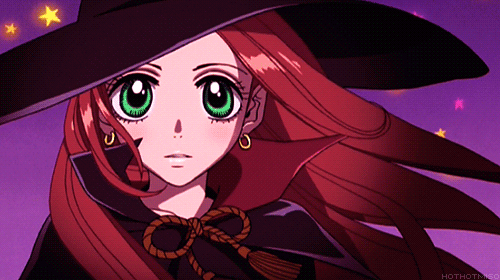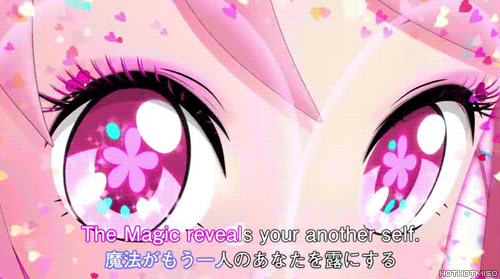
A few weeks ago, I had a pleasure of attending GeekGirlCon in Seattle, a con that celebrates women involved in various aspects of geek culture, including science and technology, animation, comics, graphic novels, and the like. While I came to Seattle with no idea of what to expect, when I got there, it felt like I had come home. Even though GeekGirlCon celebrates women, both men and women, singles, couples, and families, cosplayers and non-cosplayers, where there in high numbers. Even with over 11K attendees over the weekend, it felt like an intimate, cosy, and inclusive event! (And don’t get me started on how I had to behave myself in the Dealer’s Room…)
I’d been asked to be a part of the Magical Girls panel due to my research of the subject – the organizers wanted more anime/manga representation, and because of the popularity of series such as Sailor Moon and Cardcaptor Sakura (which are celebrating their 25th and 20th anniversaries, respectively), they wished to run this panel. Of course, I jumped at the chance, even though this panel would be more like a moderated discussion (and I’m used to lecturing/audience participation). I had my doubts, though – I had no idea of who would be on the panel with me and I had my own issues with Imposter Syndrome (which I’ll leave for another post). But I knew I couldn’t pass up the opportunity.
Even though we were up against the “Women of Pixar” panel, quite possibly the biggest panel which I probably would have meandered to if were available, the panel was filled to capacity – lines were forming more than thirty minutes before the panel! The four us – Merri Christianson from the FakeGeekGirls Podcast, Writer and 50s Magical Girl Paige Lavoie, Seattle Photographer and Event Organizer Natasha Tucker, and myself – were both surprised and nervous. We didn’t know what to expect, but I don’t think we were expecting that! As the room filled and my heart raced in excitement, I knew something special was about to go down.
I know this sounds dramatic, but I knew that once all was said and done, I’d never be the same again.

Why Magical Girls?
Of all the topics to devote a thesis to, why would you want to talk about cute girls holding weird sticks, shouting weird phrases, wearing weird-but-sexy outfits, who save the world but are never discovered to be magical girls by their family and friends?
Well, why not?
Seriously, why not magical girls?
I know, I know, the study of anime appears to be a growing field of research in academia. When I was an undergrad, I read a healthy amount of journal articles analysing anime; Miyazaki films, Ghost in the Shell, Satoshi Kon films, and Osamu Tezuka were favourites among the academic community. But what if I told you that there was so much stuff that still needs to be explored? Don’t get me wrong, I love Miyazaki, Kon, and without Tezuka, magical girls would be something completely different (his series Princess Knight [リボンの騎士] is considered to be the prototype for this particular genre). But they aren’t the only animated works that are worthy of study.
I have to admit though, of all the things I thought I would devote to my research topic, magical girls wasn’t one of them. I originally planned to study shoujo manga because I wrote a paper about the demographic in a class devoted to the notions of love and sex in Japanese culture. But then I ended up getting totally into Kill la Kill, and that lead to the idea of performing a panel all about Magical girls at Tsukino-Con, my local anime convention. With the support of a wonderful friend, I did the panel, which was a smashing success.
Even then, I didn’t devote myself to studying magical girls. Instead, I wanted to create a Japanese learning program that would marry Japanese popular culture with language study. But that proved to be too ambitious, as I’m still learning the language. So, I devoted myself to studying magical girls.
I’m so glad that I did.
I’ve engaged with many amazing people because of my research. I’ve learned so much in the past year and half and now that grad school is starting, I’ve learned even more. It is my hope to start a conversation in the academic community about magical girls, in hopes of illustrating how fascinating the research is and to encourage others to pursue their interests, even if no one before them has paved away.
In studying magical girls, I’ve learned about how women become a powerful force when they are determined to do something, and it is their emotional vulnerability as their emotional narrative that makes the story much more interesting and engaging. And while the genre may have it’s detractors – even I am aware of how problematic and complex it can be – it clearly has a following of people who have been inspired by the narrative.
And in the next entry, as we return back to GeekGirlCon, I’ll do my best to explain how it has.
{つづく} – To Be Continued
